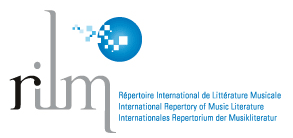Jorge Horst and the Ideological-Political: An Approach to His Productive Reception of Luigi Nono’s Poetics (With Focus on the All-interval Row)
Keywords:
Musical analysis, transtextuality, cryptography, self-analysis, John CageAbstract
The abundance of self-analysis that can be seen in a significant portion of Jorge Horst’s work tends to emphasize its ideological and political aspects in diverse ways. Furthermore, it connotes a world of productive receptions that has been scarcely explored. In this framework, the reception of Luigi Nono’s poetics undertakes a fundamental role and continues to be portrayed, among a considerable number of structural aspects, in the noticeable political dimension that both Horst’s works and self-analysis flaunt. Accordingly, we propose a journey centered in the all-interval row used by Nono since the mid-1950’s to delve into Horstian writings and compositions comprised between Serialismos (1990) and ALOF’ CO LAF’QUEN (2019) —for violin and marimba—, which allows us to emphasize the extension and permanence of the marked connection. At the same time, we account for a heterotopia that bonds Nonian materials and techniques with indeterminate procedures associated with the work of John Cage. In short, we attempt to demonstrate how the reception studied becomes a fundamental constituent of Horst’s poetics by involving both the applications of transtextual and cryptographic devices and the creation of theoretical notions, which ultimately involves providing elements to specify the functioning of the ideological-political in said poetics.
Additional Files
Published
Issue
Section
License
Copyright (c) 2022 Revista Argentina de MusicologíaATTRIBUTION-NONCOMMERCIAL 4.0 INTERNATIONAL
https://creativecommons.org/licenses/by-nc/4.0/
You are free to:
- Share — copy and redistribute the material in any medium or format
- Adapt — remix, transform, and build upon the material
- The licensor cannot revoke these freedoms as long as you follow the license terms.
Under the following terms:
- Attribution — You must give appropriate credit , provide a link to the license, and indicate if changes were made . You may do so in any reasonable manner, but not in any way that suggests the licensor endorses you or your use.
- NonCommercial — You may not use the material for commercial purposes .
- No additional restrictions — You may not apply legal terms or technological measures that legally restrict others from doing anything the license permits.
Notices:
You do not have to comply with the license for elements of the material in the public domain or where your use is permitted by an applicable exception or limitation .
No warranties are given. The license may not give you all of the permissions necessary for your intended use. For example, other rights such as publicity, privacy, or moral rightsmay limit how you use the material.







